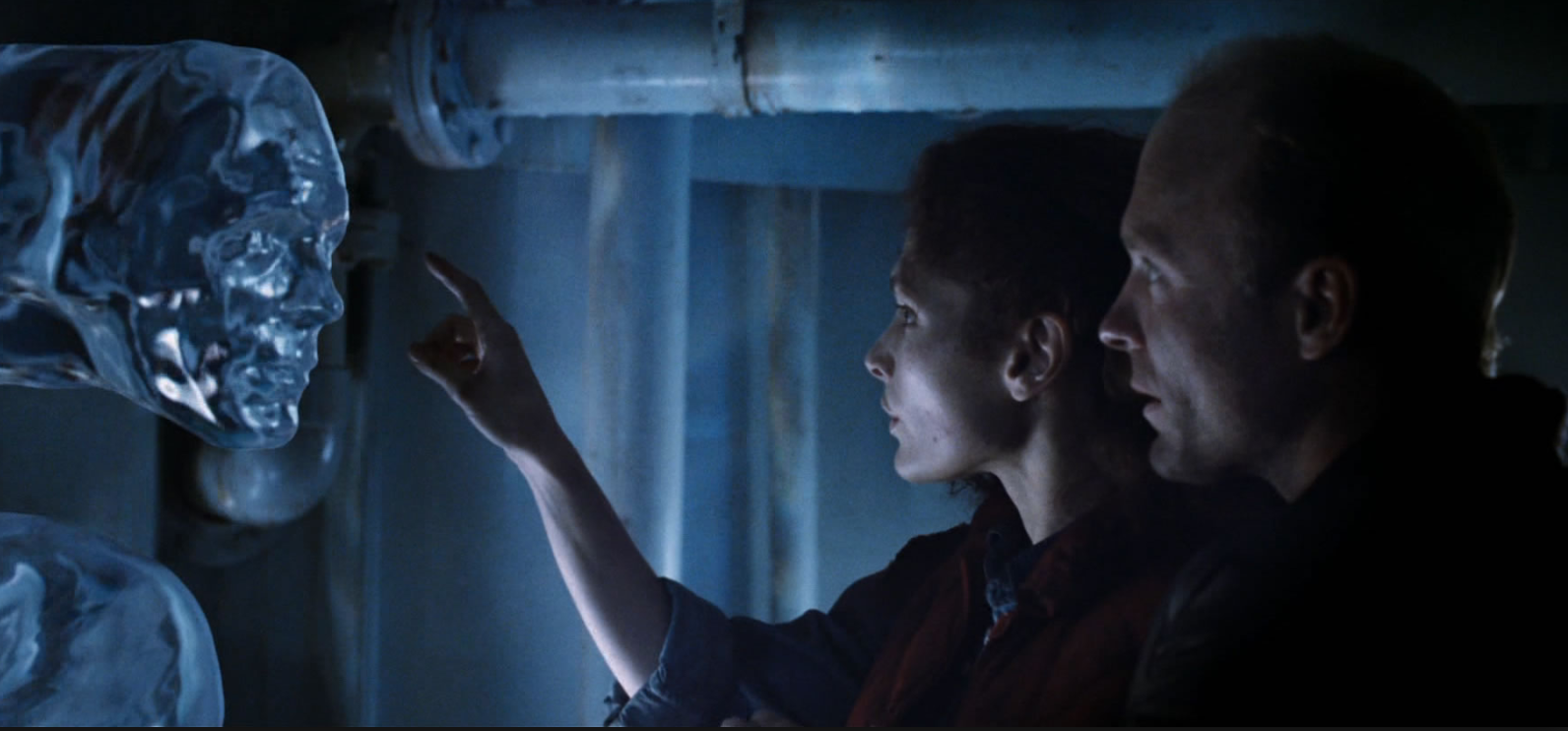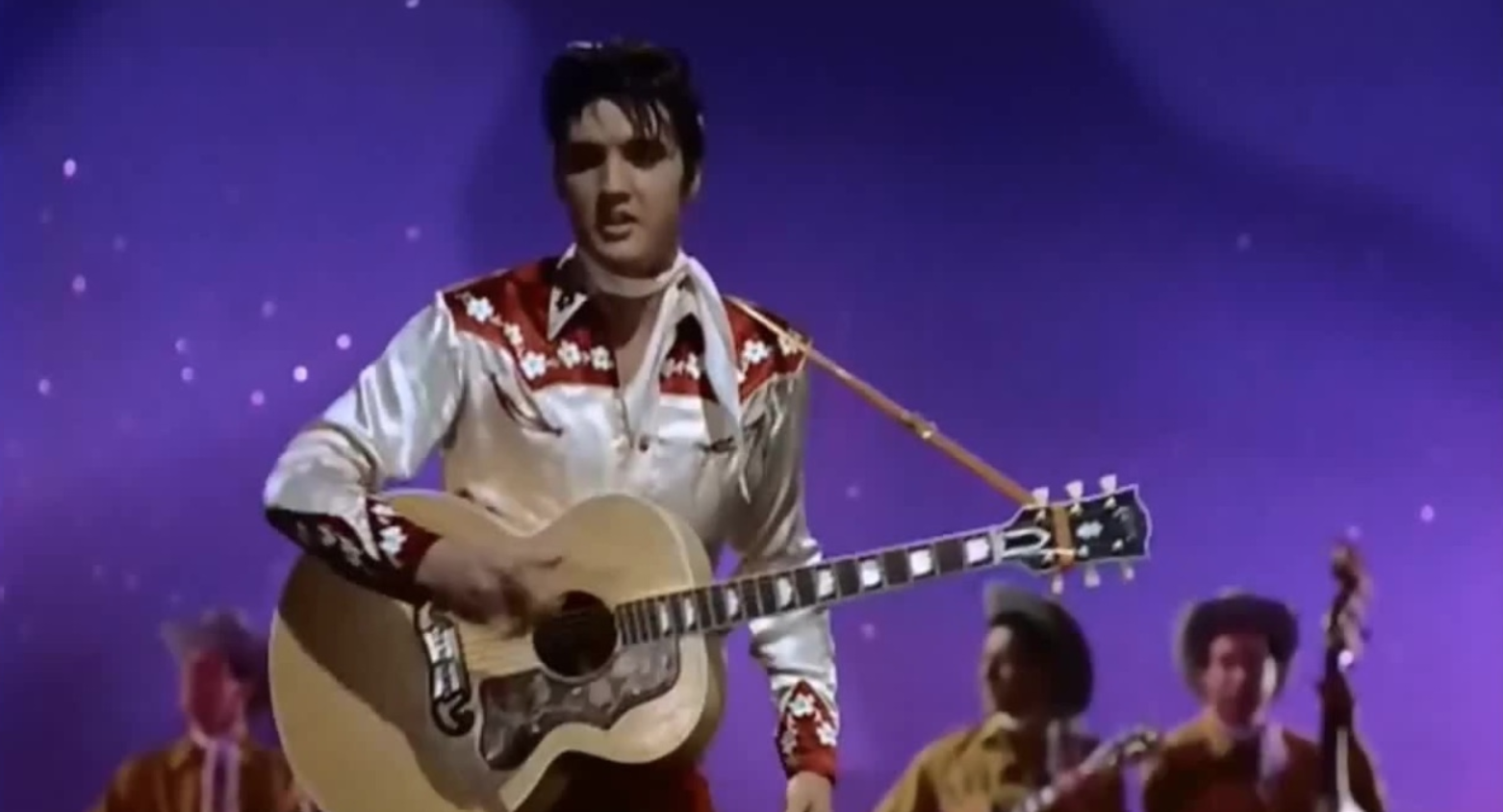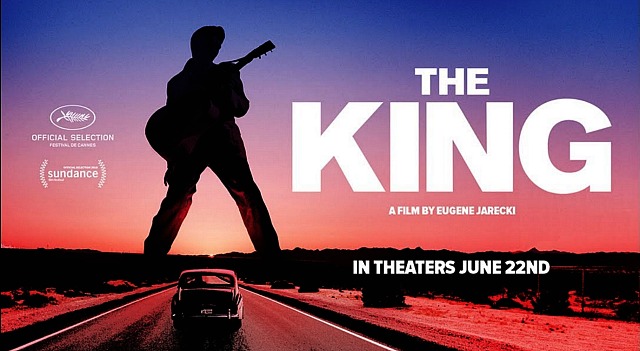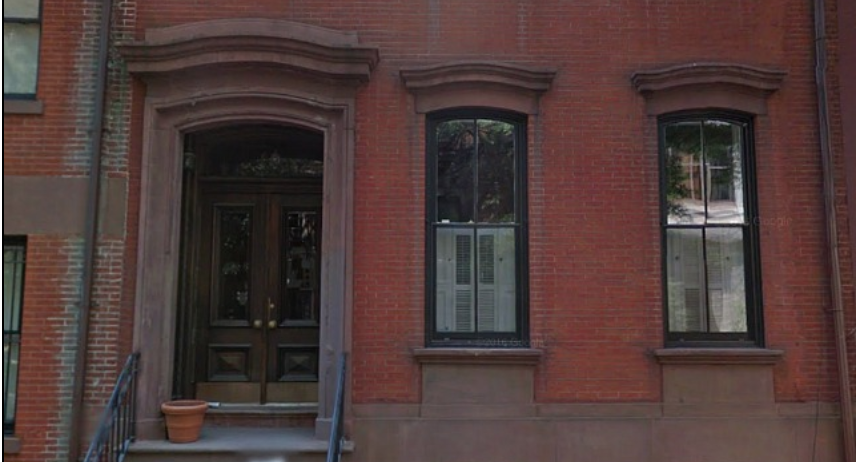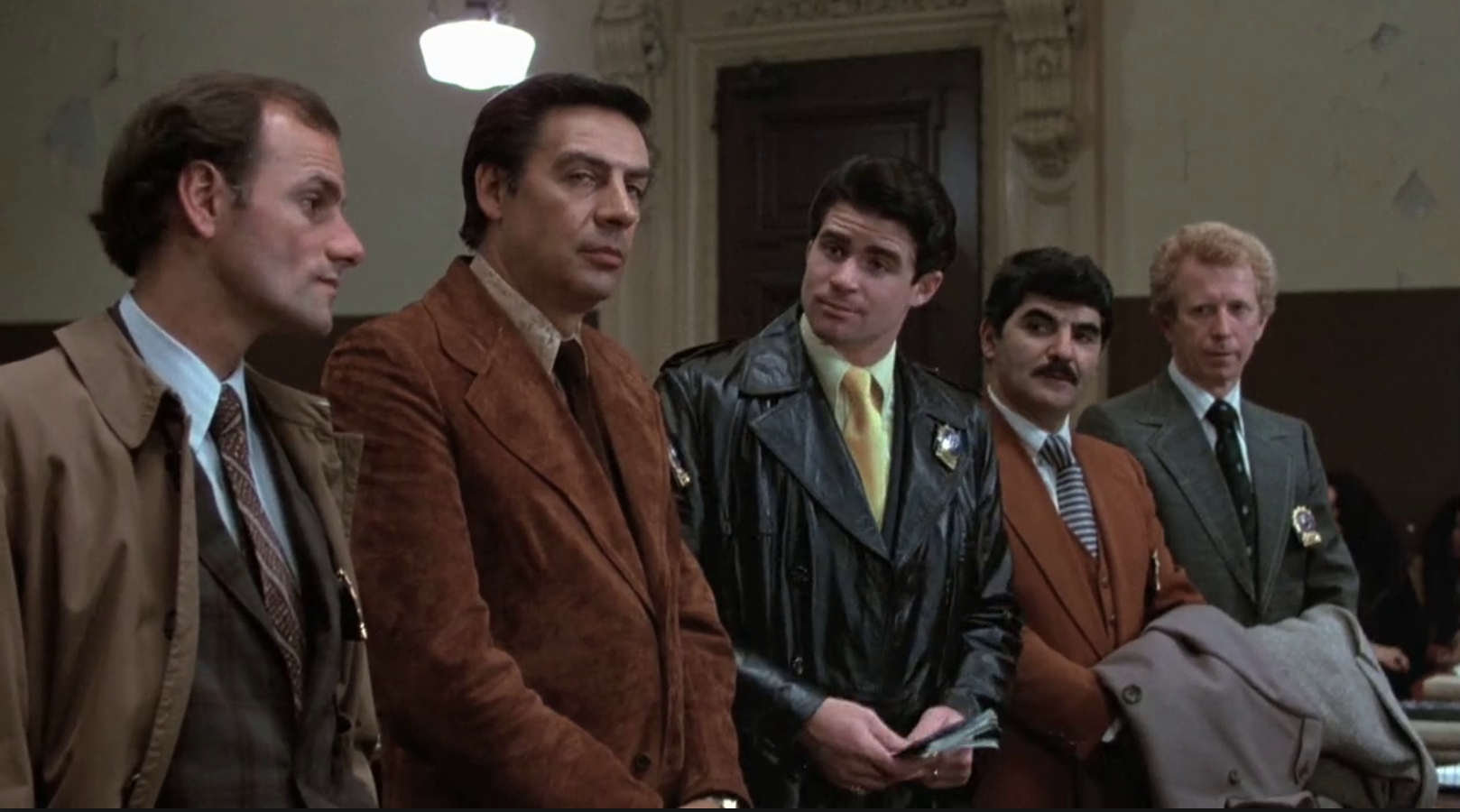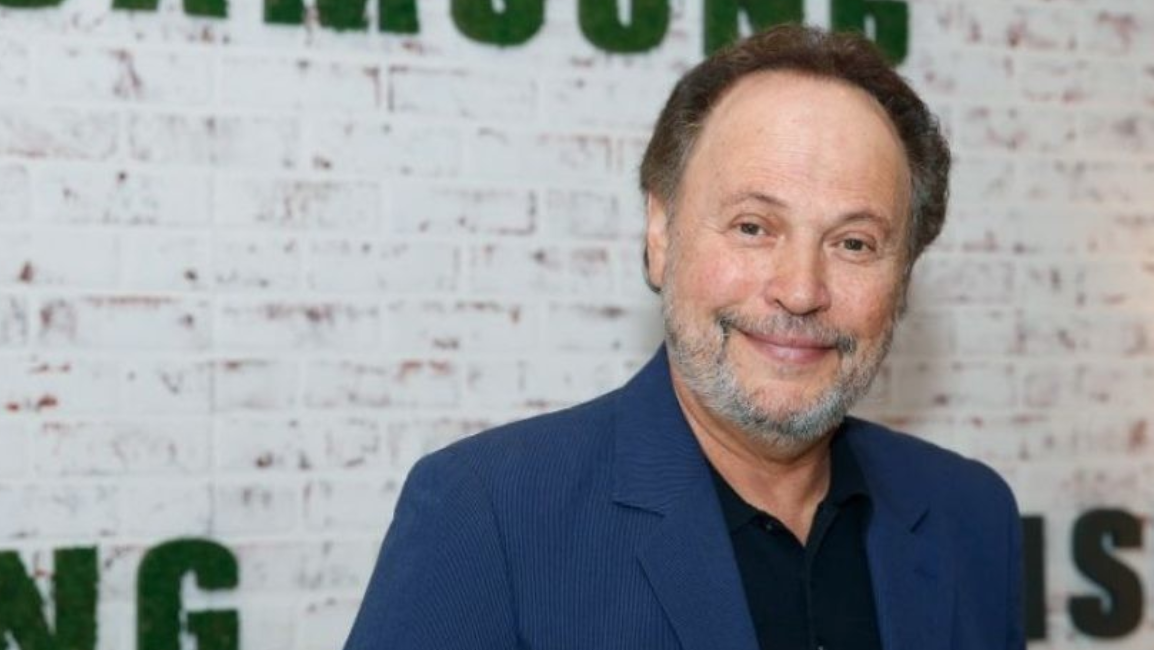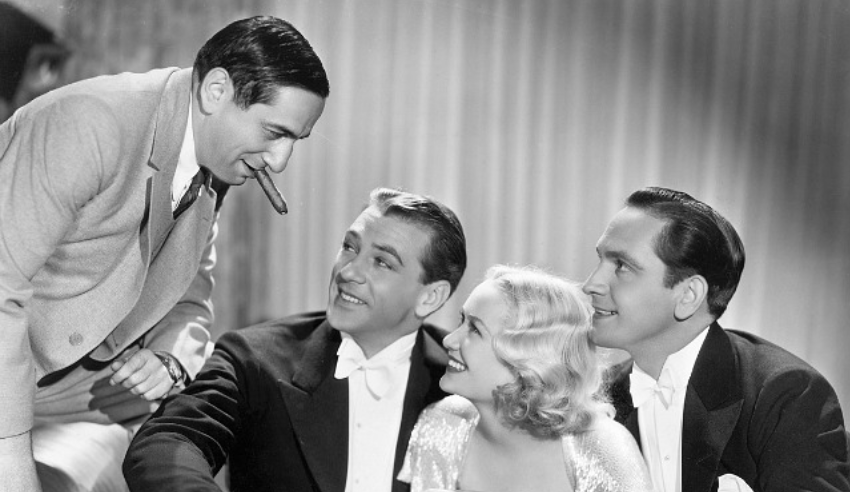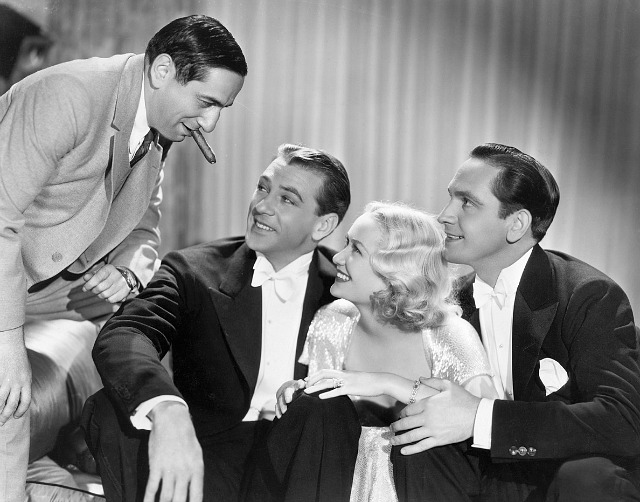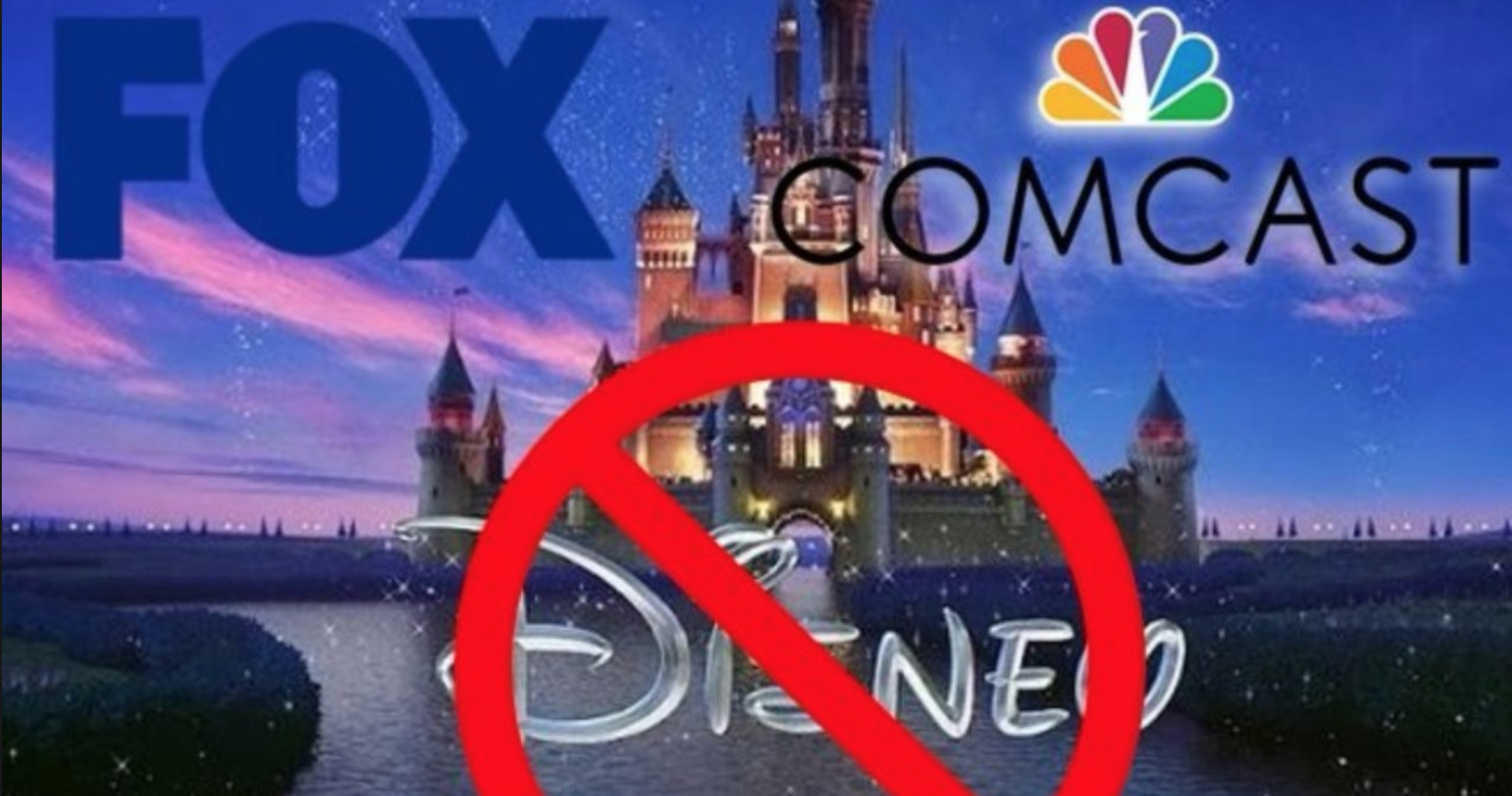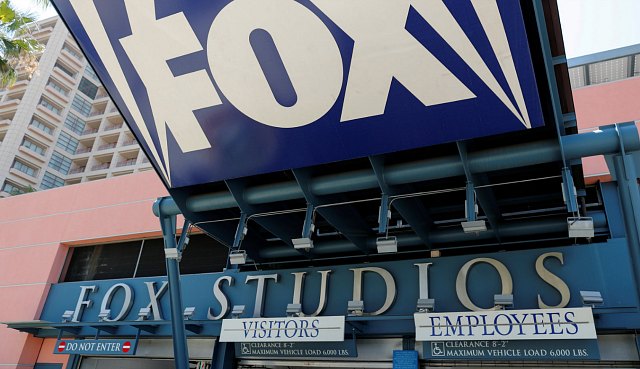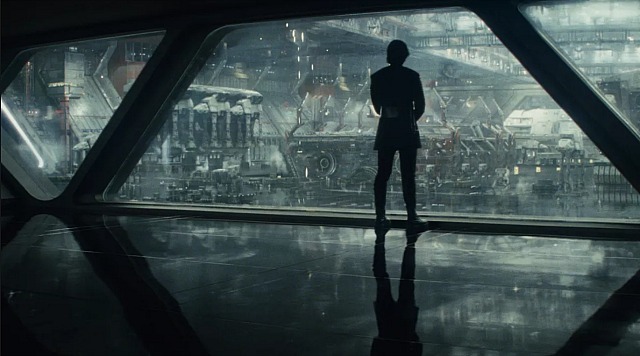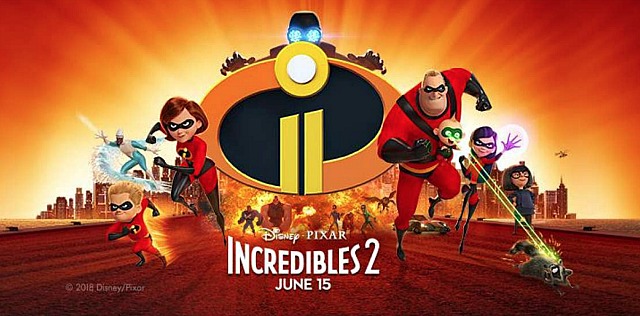The main thing about Eugene Jarecki‘s The King is that it’s less of a “rise and fall of Elvis” film than a meditative road-trip essay about the cultural decline of the U.S. of A. over the last…oh, call it 60 years. But with doses of music and feeling and irony and currents of straight talk. It’s a stirring musical sermon. How did we get here? Then vs. now. The bloat, the denial, the loathing…a nation arguably more at war with itself than at any time since the Civil War. Paul Simon rewrite: “We’re empty and aching and don’t know why.”
Well, actually we do. The same forces that gradually enveloped that young and jumpy Memphis rocker who exploded in the South in ’55 and then nationally in 1956 with a blend of rockabilly and white-boy soul…the musical-spiritual aura that defined him gradually dispersed, and then selling out became the be-all, the chimes of irrelevance…shitty movies, Las Vegas gigs instead of touring the country, Dr. Feelgood medication, endlessly beholden to Colonel Tom Parker, huddling with the Memphis mafia behind Graceland gates. A flamboyant, increasingly perverse, go-for-the-dough lifestyle that pretty much drained and ate him.
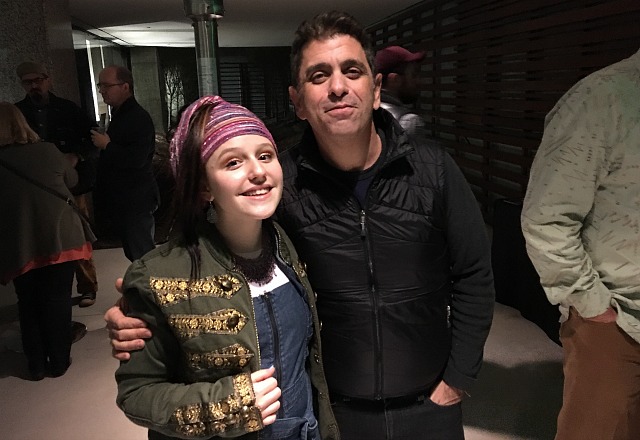
13 year-old country blues singer
Emi Sunshine, who takes a ride in Elvis’s silver Rolls Royce and sings some tunes in
Jarecki’s doc, and Mr. Jarecki himself — Tuesday, 3.6, following screening at UTA.
It can’t hurt to repost the official synopsis: “A musical road trip across America that explores how a country boy lost his authenticity and became a king while his country lost its democracy and became an empire.” 27 words. Marketers would say trim it down. “A half-musical, all-visual poem about how the Las Vegas aesthetic swallowed America in the same way it swallowed Elvis Presley.” Still too long?
As noted everywhere, The King itself was trimmed after its world debut at the 2017 Cannes Film Festival, when it ran 117 minutes. Now it’s around 97.
My first viewing of The King happened three and a half months ago inside United Talent Agency headquarters. In a HE piece that posted on 3.6 (“King of Drain“), I said I was “pretty close to knocked out — touched and shaken to the depths of whatever — and I’ll eat my black Kenneth Cole desert boots if it doesn’t become a Best Feature Documentary nominee next January. It’s that good, that bell-ringy, that profound.”
Now the hour is nigh — The King (Oscilloscope) opens on 6.22.
The King isn’t the least bit grim or draining or forlorn — as you watch there’s a feeling that all the cultural threads and fibres have been woven just so. Not an Elvis doc, not an Elvis doc, not an Elvis doc…but a telling of his story (which most of us know backwards and forwards) in a way that expands and deepens and makes you lean forward.
Every talking head has two or three sage things to say: Greil Marcus, James Carville, Chuck D, Alec Baldwin, Roseanne Cash, Ethan Hawke, Emmylou Harris, Van Jones, Ashton Kutcher, Mike Myers, Dan Rather, Luc Sante, David Simon, Linda Thompson. My favorites are Hawke, Jones and Public Enemy’s Chuck D.
I was actually a tiny bit sorry when The King ended.
…
Read more

